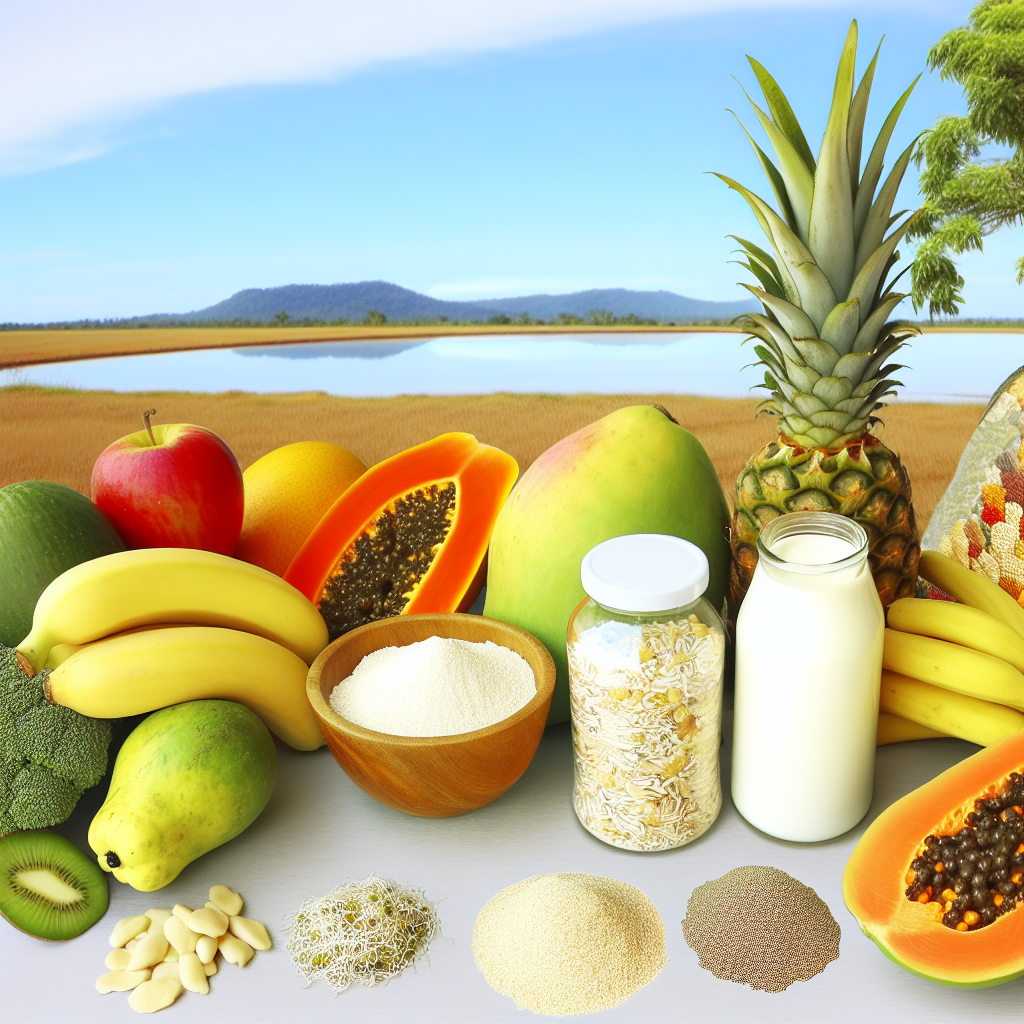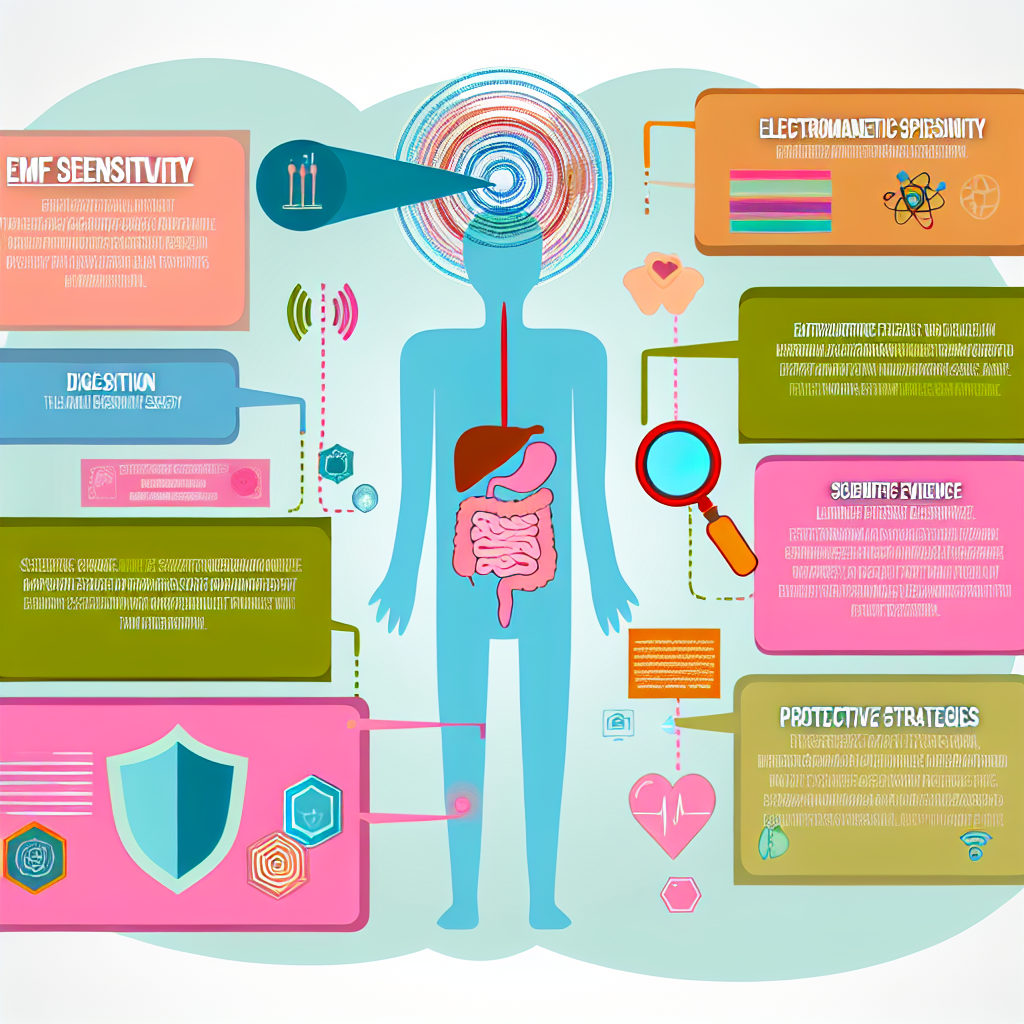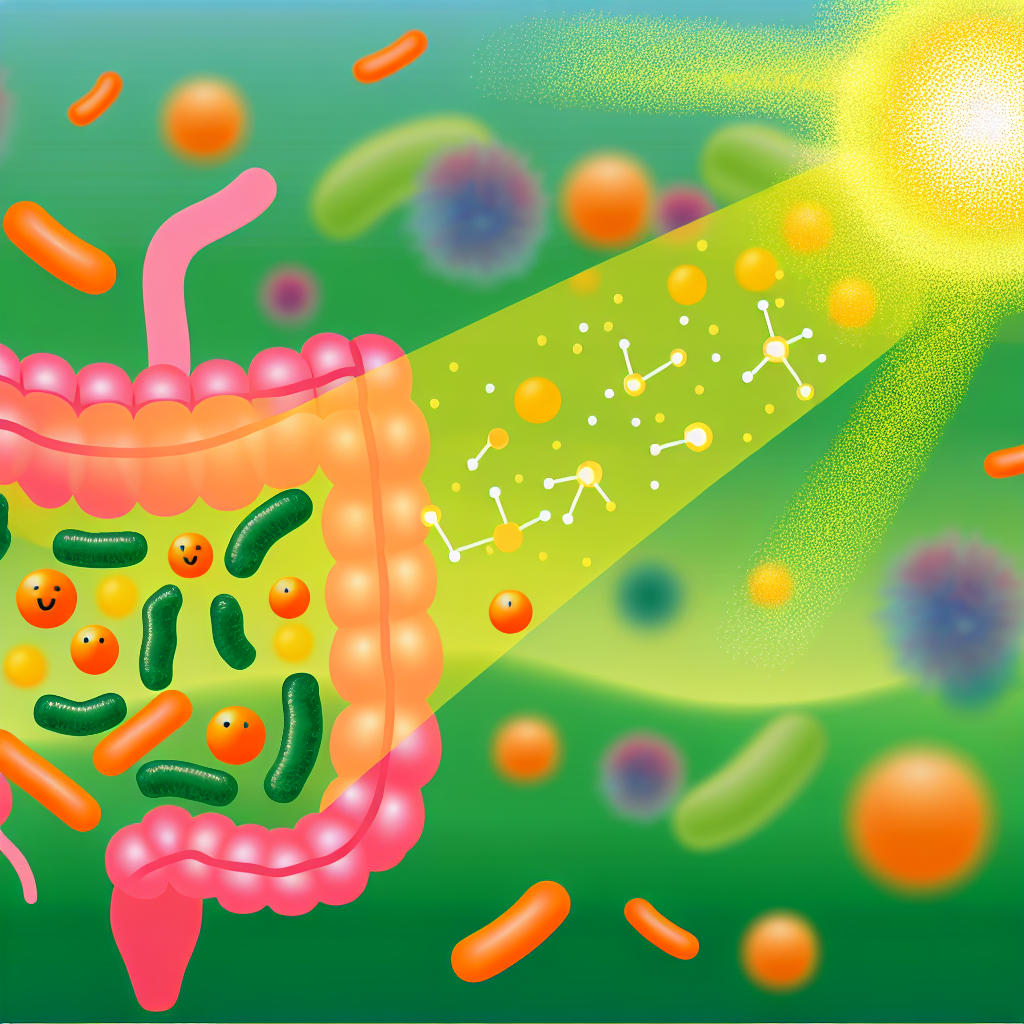Natural Digestive Enzymes: A Comprehensive Guide to Better Gut Health
Introduction: The Key to a Healthy Digestive System
Maintaining a healthy gut is essential for overall well-being, as the digestive system plays a crucial role in breaking down food, absorbing nutrients, and eliminating waste. One of the key factors in optimal digestion is the presence of digestive enzymes—biological catalysts that facilitate the breakdown of proteins, carbohydrates, and fats into smaller, absorbable molecules.
While the body produces its own digestive enzymes through the pancreas, small intestine, and salivary glands, some individuals experience enzyme deficiencies, leading to bloating, indigestion, and nutrient malabsorption.
Natural digestive enzymes found in certain foods and herbal remedies can help supplement the body’s enzyme production, improve digestion, and support gut health. Consuming enzyme-rich foods such as pineapple, papaya, fermented vegetables, and sprouted seeds can significantly enhance the digestive process.
Additionally, natural supplements derived from plant-based or fermented sources can aid those suffering from issues such as lactose intolerance, acid reflux, or conditions like irritable bowel syndrome (IBS) and inflammatory bowel disease (IBD).
The Science Behind Natural Digestive Enzymes
Several scientific studies have examined the efficacy of natural digestive enzymes in enhancing gut health and overall digestion. Among the most extensively researched are bromelain, papain, and enzymes derived from probiotic-rich fermented foods.
Bromelain: The Power of Pineapple Enzymes
A study published in *Biomedical Reports* (2016) found that bromelain, a proteolytic enzyme derived from pineapple, has significant anti-inflammatory and digestive benefits. It accelerates protein digestion and reduces symptoms of gastrointestinal disorders, particularly in individuals with pancreatic insufficiency, where the pancreas does not produce enough digestive enzymes. The study also highlighted bromelain’s potential to reduce bloating and improve nutrient absorption, making it beneficial for those with compromised digestion ([Waldron et al., 2016](https://www.ncbi.nlm.nih.gov/pmc/articles/PMC4998156/)).
Papain: The Digestion-Boosting Enzyme from Papaya
Another study published in the *Journal of Medicinal Food* (2010) examined the effects of papain, an enzyme extracted from papaya, on digestion. The research showed that papain enhances protein breakdown and mitigates gastrointestinal discomfort. It was particularly effective against symptoms of irritable bowel syndrome (IBS), such as bloating and constipation. This suggests that supplementing with papain-rich foods or extracts could be beneficial for individuals experiencing digestive distress ([Tappenden et al., 2010](https://www.liebertpub.com/doi/10.1089/jmf.2009.0142)).
Fermented Foods: Nature’s Probiotic and Enzyme Source
Fermented foods, such as kimchi, sauerkraut, and yogurt, contain naturally occurring digestive enzymes that aid in breaking down food components. Lactobacillus and Bifidobacterium species found in these foods not only produce lactase to help digest lactose but also contribute to a balanced gut microbiome.
A meta-analysis published in *Nutrients* (2019) demonstrated that probiotic-rich, enzyme-containing fermented foods improve digestion and reduce symptoms of indigestion, particularly in those with lactose intolerance or irritable bowel diseases ([Markowiak & Śliżewska, 2019](https://www.mdpi.com/2072-6643/11/6/1395)).
The Role of Digestive Enzyme Supplements
The use of digestive enzyme supplements—such as plant-based enzyme blends containing amylase, protease, and lipase—has also been documented in clinical trials.
A randomized controlled study published in *Alimentary Pharmacology & Therapeutics* (2016) concluded that supplementing with digestive enzymes significantly reduced symptoms of bloating, gas, and discomfort in individuals with functional dyspepsia ([Wilder-Smith et al., 2016](https://onlinelibrary.wiley.com/doi/abs/10.1111/apt.13796)).
These findings reinforce the importance of dietary enzyme sources and supplementation for individuals struggling with digestive health concerns.
Best Natural Sources of Digestive Enzymes
Incorporating enzyme-rich foods into your daily diet is a simple way to improve digestion and support gut health. Here are some of the best natural sources of digestive enzymes:
– Pineapple – Rich in bromelain, which helps digest proteins and reduce inflammation.
– Papaya – Contains papain, an enzyme that aids protein digestion and alleviates bloating.
– Fermented Foods – Sauerkraut, kimchi, miso, yogurt, and kefir provide probiotics and digestive enzymes.
– Sprouted Seeds & Nuts – Sprouting enhances enzyme content, aiding digestion.
– Bananas – A good source of amylase, which helps break down carbohydrates.
– Avocados – Contain lipase, aiding in fat digestion.
How to Incorporate Natural Digestive Enzymes into Your Diet
You can enhance your digestive health by including enzyme-rich foods in meals or taking enzyme supplements when necessary. Here are some practical ways to do so:
1. **Start Your Morning with Pineapple or Papaya** – Fresh pineapple or papaya makes an excellent breakfast or smoothie ingredient.
2. **Eat Fermented Foods Daily** – Add yogurt, kefir, or sauerkraut to your meals.
3. **Use Sprouted Grains and Nuts** – Choose sprouted bread, seeds, or nut butters for improved digestion.
4. **Take a Quality Enzyme Supplement** – If experiencing digestive discomfort, consider plant-based enzyme supplements containing protease, amylase, and lipase.
5. **Stay Hydrated** – Drinking enough water helps digestive enzymes function efficiently.
Conclusion: Take Control of Your Digestive Health
Incorporating natural digestive enzymes into your diet is a powerful way to support gut health and optimize digestion. Enzyme-rich foods such as pineapple, papaya, fermented vegetables, and sprouted seeds offer natural solutions for improving digestive function, reducing bloating, and enhancing nutrient absorption.
Medical research has confirmed the benefits of these enzymes, highlighting their role in addressing issues such as IBS, dyspepsia, and pancreatic insufficiency. By focusing on whole, enzyme-rich foods and considering high-quality supplements when necessary, individuals can take proactive steps toward better digestive wellness.
A well-balanced diet that includes natural digestive enzymes helps maintain a strong gut microbiome, supports immune function, and contributes to overall well-being.
If digestive discomfort persists despite dietary adjustments, consulting a healthcare professional for further guidance is recommended.
100 Word Summary:
Maintaining a healthy gut is crucial for overall well-being, and natural digestive enzymes play a key role. Enzymes from foods like pineapple, papaya, and fermented vegetables can improve digestion, reduce inflammation, and support gut health. Scientific studies have demonstrated the benefits of enzymes like bromelain and papain for issues like IBS and pancreatic insufficiency. Incorporating enzyme-rich foods and supplements can optimize digestion, enhance nutrient absorption, and promote a balanced gut microbiome. By making dietary changes and seeking professional guidance when needed, individuals can take control of their digestive health.

Dominic E. is a passionate filmmaker navigating the exciting intersection of art and science. By day, he delves into the complexities of the human body as a full-time medical writer, meticulously translating intricate medical concepts into accessible and engaging narratives. By night, he explores the boundless realm of cinematic storytelling, crafting narratives that evoke emotion and challenge perspectives.
Film Student and Full-time Medical Writer for ContentVendor.com




